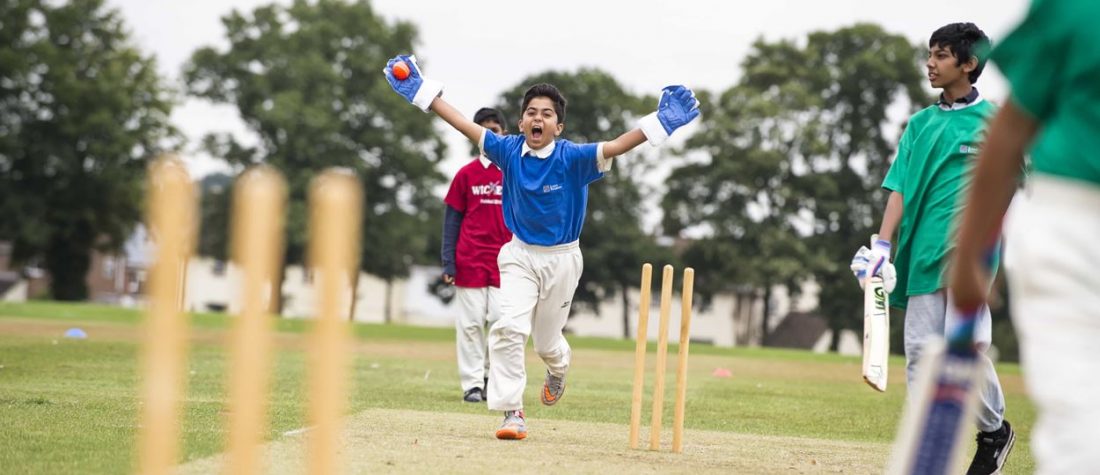Members of Parliament (MPs) from the UK travelled to Greece recently to commemorate the 200th anniversary of cricket in Greece. The visit from the UK Commons and Lords Cricket Team highlighted role of sport in both opportunities for disadvantaged youths, but for wider improvements in society, community and mental health.
The cricket tour was held in Corfu, Greece, where cricket had been introduced by from Britain after it took control of the island in 1815 from Napoleonic France. Following Greek independence from the Ottoman Empire in the 1820’s, Great Britain granted the island to the new Greek state in 1864, leaving cricket behind as their legacy.
At the heart of Corfu’s historic city centre remains the cricket field, used by local teams such as Byron Cricket Club since the first match was held between the Navy and the Garrison on the 23rd of April 1823. 200 years later, the British Army Development XI defeated the Royal Household CC to win the tournament.
The tour’s success demonstrates the power of sport in building resilience, promoting self-confidence, and improving mental well-being. One of the teams participating in the tour was the Lord’s Taverners, captained by David Gower, former England cricket captain and cricketing icon. The charity, through their ‘Wicketz’ programme, aims to give disadvantaged young people “a sporting chance”. Young people from communities lacking in opportunities, both economic and sporting, are given the opportunity to learn teamwork, purpose and camaraderie.
Gower remarked that “the game can spread goodwill in bucketloads: at its best, cricket brings people together.” By working with their partners including the Home Office and the Police, the programme addresses at source some of the most complex social issues faced by those living in deprived areas of the UK. It gives young people a “group to be a part of, not a gang”, and shows that sport is a “tool of social engagement”, Gower said. Police have been known to refer young offenders to Wicketz, demonstrating the trust in, and effectiveness of, these kinds of programmes. This light-touch approach, based on the magic of sport and the understanding that young people need opportunity, not punishment, was praised by MPs present, with Crispin Blunt MP describing it as “fabulous”.
Mohammed Malik and many others in Luton joined their local Wicketz programme on the promise of free coaching and sport. Having joined aged 12, he found himself enjoying the sport, the community and the competition. “That’s where my passion grew”, Malik says. Aged 19, he is now a qualified cricket coach, has played county cricket for Bedfordshire and is giving back to the programme that introduced him to the sport. “If they didn’t come, they have their heads focused on something else”, Malik remarked, highlighting how community sport both can provide a positive outlet through which young people can reclaim their mental wellbeing. In Gower’s words: “hope, purpose and community”.
Nigel Adams MP, former Minister for Sport (DMCS), concluded that “more time must be made in the school day for sport – it’s so essential”. It is a lesson that has been “borne out by lockdown”.
The Lords Taverners’ focus on mental health has significant policy implications. They highlight that “40% of young people under 16 have experienced deterioration in their mental health since 2017. Rates of probable mental health issues have increased by a third since the same year”.
By directly addressing issues of loneliness, self-esteem, and by promoting socialisation and cooperation, sport has been shown to be strongly associated with sound mental and physical health both in childhood and adulthood and with lower rates of stress. When people play, that it often taken as the first sign of recovery from trauma.
Exercise causes the release of endorphins which counteract stress hormones cortisol and adrenaline. Outdoor sport such as cricket also involves being outside, and in the sun, which is itself strongly associated with calm and focus via the release of the neurotransmitter serotonin.
Focus was therefore given to the potential of sport as decentralised and community-based solution to long standing and serious issues of mental health both in Greece and the UK. It is included in a category of non-state solutions – where communities and individuals themselves can take charge of the prevention of mental health issues before they become a problem. Other personal solutions include meditation, cognitive behavioural therapy (CBT) techniques, and stress-relieving habits such as chewing gum or keeping a diary.
The 200-year Anniversary Cricket tournament was not just an opportunity for its teams, including the Gurkha Regiment and the Greek National Team, to play the game in a beautiful and historic setting. It was a unique opportunity to learn the importance of sport and mental health from a community who have treasured the game for generations. By showing us what sport can do, Greek cricket will have left its own legacy in the UK.


